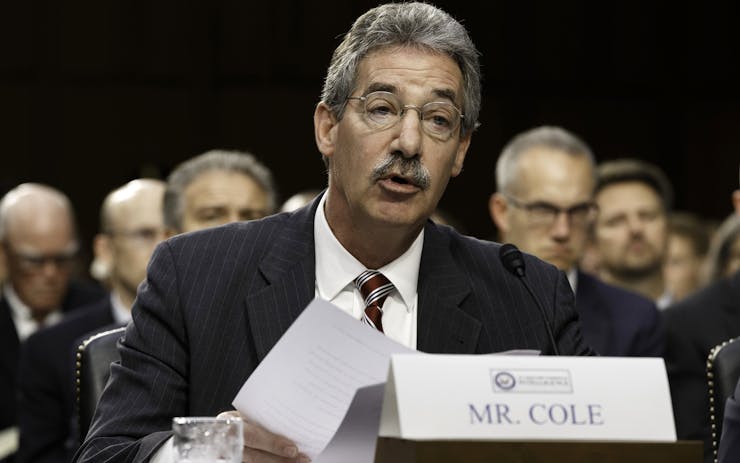“The Cole Memo” is a phrase that often comes up when discussing cannabis and politics, but many people, even more knowledgeable cannabis consumers, aren’t entirely sure what it is or what it means for the cannabis industry.
What Is the Cole Memo?
In 2012, voters in Colorado and Washington legalized cannabis for adult use. By August 2013, both states were deep in the process of drafting rules and regulations for the nascent industry. With the new state laws at odds with federal law in an entirely unprecedented way, state attorneys looked to the federal government for guidance.
The Cole Memo was a document originally drafted by former US Attorney General James M. Cole in 2013. Cole issued a memorandum to all US attorneys that was published through the Department of Justice on August 29, 2013. The memo indicated that prosecutors and law enforcement should focus only on the following priorities related to state-legal cannabis operations:
- Preventing the distribution of marijuana to minors;
- Preventing revenue from the sale of marijuana from going to criminal enterprises, gangs and cartels;
- Preventing the diversion of marijuana from states where it is legal under state law in some form to other states;
- Preventing state-authorized marijuana activity from being used as a cover or pretext for the trafficking of other illegal drugs or other illegal activity;
- Preventing violence and the use of firearms in the cultivation and distribution of marijuana;
- Preventing drugged driving and the exacerbation of other adverse public health consequences associated with marijuana use;
- Preventing the growing of marijuana on public lands and the attendant public safety and environmental dangers posed by marijuana production on public lands; and
- Preventing marijuana possession or use on federal property.
It was modeled after a similar memorandum issued by Deputy Attorney General David Ogden in 2009 that directing US attorneys to “not focus federal resources in your states on individuals whose actions are in clear and unambiguous compliance with existing laws providing for the medical use of marijuana.”
The Cole Memo represented a significant shift in the federal government to de-prioritize the use of funds to enforce cannabis prohibition under the Controlled Substances Act towards a more laissez-faire, hands-off approach.
After the memo was issued, most federal prosecutions were halted unless they met the listed criteria. A notable exception was the case of the Kettle Falls Five, a family that relied on cultivating medical cannabis as part of a collective garden in Washington state in 2015. The family was cultivating plants for five patients, but the plant number exceeded the 45-plant limit. After firearms were found on their property, the entire family faced five federal drug charges, of which four were dismissed.
Since the issuance of the memo, federal cannabis prosecutions have petered off in legal states. In August 2017, the Task Force on Crime Reduction and Public Safety appointed by Jeff Sessions found no new policy suggestions, and its report stated that officials should continue to oppose rules that block the Justice Department from interfering with medical marijuana programs in states where it is allowed.






